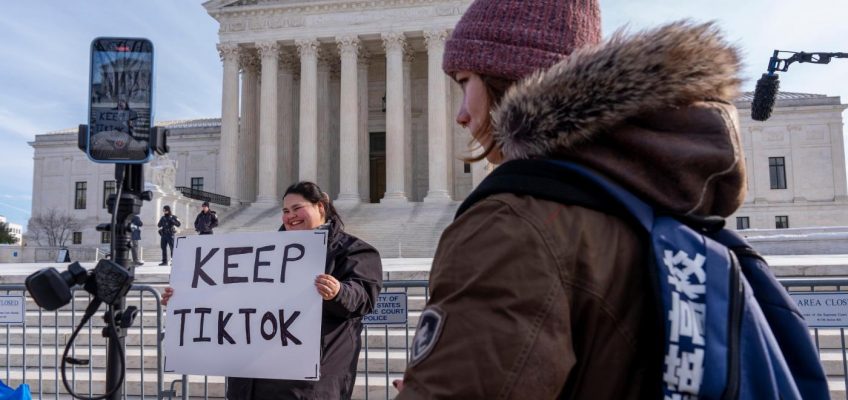The Supreme Court’s pending decision on the future of TikTok in the United States raises critical issues not just about free speech but also about the risks posed by modern data collection practices. As a psychology professor with expertise in personality and behavior, I have been closely monitoring how social media platforms collect and utilize user data since the Cambridge Analytica scandal in 2018.
The Cambridge Analytica case exposed how personal data could be harvested and used to influence voter behavior, highlighting the potential of digital platforms to affect individuals and society on a massive scale. Platforms like TikTok build on these capabilities, harvesting an enormous and ever-growing repository of personal data.
Over months and years, the app collects and aggregates billions — if not trillions — of data points from its users. These include not only explicit interactions such as likes, shares and comments but also subtle behaviors like viewing duration, location tracking, device usage patterns, and inferred emotional states. This continuous accumulation of data provides a comprehensive and detailed portrait of an individual’s personality, preferences, habits, and potential vulnerabilities.
With the integration of artificial intelligence, this vast dataset becomes a powerful tool for predicting and influencing behavior at both the individual and societal levels. The precision and scope of such behavioral modeling could have far-reaching consequences, including the identification of systemic vulnerabilities that could be exploited by malicious actors.
Such data collection raises significant concerns, including:
Personal privacy disruption: Detailed behavioral tracking could allow for profiling of Americans’ daily routines, interests and social connections, leaving this information vulnerable to misuse.
Digital behavior manipulation: Personalized content feeds shape users’ interests, reinforce biases, and alter behaviors, including purchasing decisions, screen time and even sleep patterns.
Financial vulnerability: Behavioral data combined with payment information could lead to more effective targeted advertising, financial profiling or exposure to sophisticated scams.
Social and professional impact: Aggregated data could influence job prospects, personal relationships and community standing if private or sensitive information is accessed or shared inappropriately.
In TikTok’s case, these risks are compounded by its Chinese ownership, which introduces the potential for this data to be leveraged for purposes such as espionage, blackmail, or manipulation of information streams. These actions could erode trust, disrupt critical infrastructure, and impact national security.
Whether TikTok is banned in the U.S. on Jan. 19 or not won’t be the end of the story. The reach and influence of a platform like TikTok are too great to not resurface again in some new and even more engaging form, even if a ban on this app does occur.
This should be only the beginning. While protecting free speech is essential, it is important to recognize the existential risks posed by unchecked data collection and manipulation. Americans are concerned (and largely in the dark) about how companies and governments use their digital data. The Supreme Court hearing today represents a pivotal moment to address these concerns, and I urge more thoughtful dialogue on the safeguards necessary to protect public and individual security in the digital age going forward.
I believe the demand that TikTok be sold to a company that is under the influence of U.S. laws is both prudent and necessary. In any case, the discussion must continue — and American lawmakers and the broader public must understand, in detail, how TikTok and similar platforms work, what they gather, how they manipulate data — and us — and how much is at stake for us a nation and as individuals.
Jhon Wlaschin, PhD, is an adjunct faculty member at the University of St. Thomas, teaching social and personality psychology.
Related Articles
Amy Koch: It’s time to end Minnesota’s moratorium on nuclear power
Real World Economics: Enter the new year with a dose of knowledgeable skepticism
Skywatch: Your telescope’s first light
Your Money: Aligning money with meaning
Working Strategies: Four resolutions for 2025


Leave a Reply